Rugby World Cup: Accor, MCG, Suncorp and Optus battle to host big games
Australia’s successful Rugby World Cup bids will guarantee sold out stadiums, the question is - which stadium should hold the biggest games? HAVE YOUR SAY
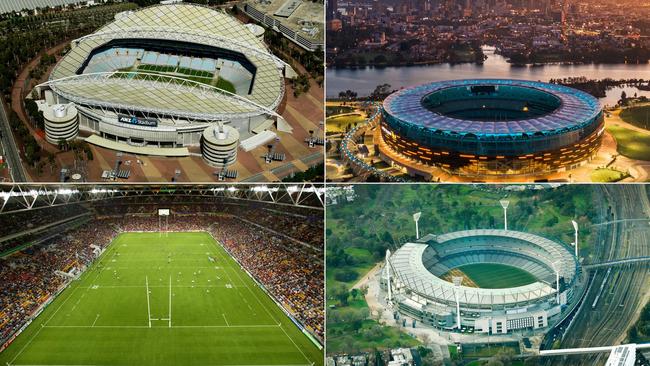
Sport
Don't miss out on the headlines from Sport. Followed categories will be added to My News.
The confirmation that Australia will host the 2027 men’s and 2029 women’s Rugby World Cup was the easy bit. The tricky part organisers now face is deciding where the matches will be played because the knives are already out.
There’s never any love lost between Australia’s grandstanding state politicians when big events are up for grabs and few come bigger than the men’s Rugby World Cup final - because it’s a guaranteed sellout that will be watched by millions of people around the world while generating millions of dollars to the chosen destination.
Organisers haven’t made any announcement yet on where the blockbuster decider will be played but they will have to get their skates because a decision is expected at the end of the year.
Stream Over 50 Sports Live & On-Demand with Kayo. New to Kayo? Try 14-Days Free Now >

Every state capital that’s involved in the tournament would desperately love to get the final so the main candidates are already making their pitches with the bidding war about to intensify in the coming months.
As the current rules stand, only grounds that can seat a minimum of 60,0000 spectators can host the final - which leaves only three candidates: Sydney’s Accor Stadium, Perth’s Optus Stadium and the Melbourne Cricket Ground, and they all have their pros and cons.
“Nothing has been decided yet and there’s a few options,” Australia’s bid leader Phil Kearns said.
“We can’t go to Brisbane and I‘m not saying this is going to happen, but you could have a semi-final in Perth, a semi-final in Melbourne and the final in Sydney. It could be something like that but I‘m not saying it will be.
“Essentially what‘ll happen is a local organising committee will be set up and it’ll go to the board of that organising committee who decides where the finals and semi-finals are going to be.”
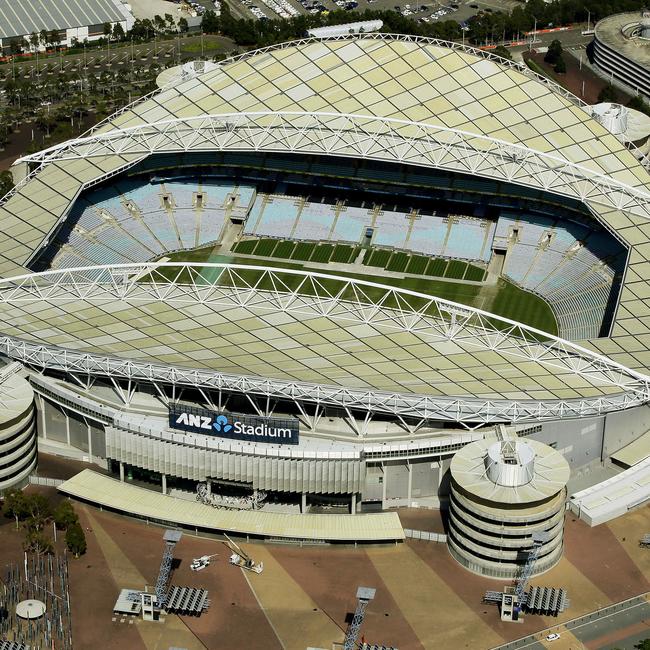
ACCOR STADIUM
Sydney’s Olympic Stadium at Homebush is the early favourite to get the final because New South Wales is the traditional heartland of Australian rugby - plus it’s a massive, sprawling stadium with a proven record of hosting major international sporting events.
The stadium holds the world record for the biggest crowd at any rugby Test - 109,874 for the 2000 Bledisloe Cup when the ground had extra seating in place for the Sydney Olympics.
More than 35,000 seats were removed after the Olympic flame was extinguished but Sydney still holds the record attendance for a Rugby World Cup final - 82,957 for the 2003 decider when the Wallabies lost to England in extra-time.
It’s also the only permanent rectangular shaped field among the three candidates which gives it a big advantage over its rivals because everyone’s just that little bit closer to the action.
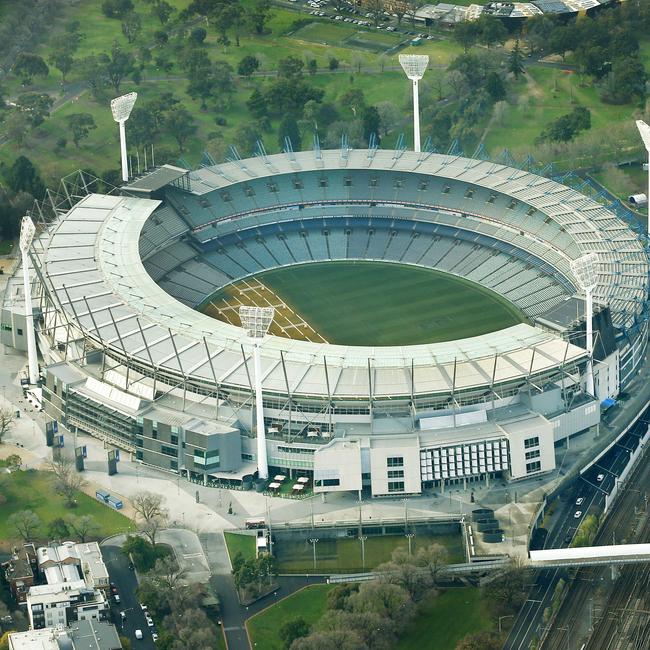
MELBOURNE CRICKET GROUND
With seating for 100,000, the MCG is easily Australia‘s biggest stadium and with the match certain to be a sellout, all those extra tickets add up to millions of dollars.
It’s no secret Rugby Australia is struggling financially after the pandemic so every buck counts and if you throw in the two semi-finals and the third-place off, playing the final at the MCG amounts to a massive windfall that will help the game.
Make no mistake about it, money talks and while the MCG may be Oval shaped and outside rugby’s traditional strongholds, Melbourne still attracts the biggest cross in Australia as was evident by the Formula One Grand Prix, the tennis, the Melbourne Cup and virtually every weekend of AFL.
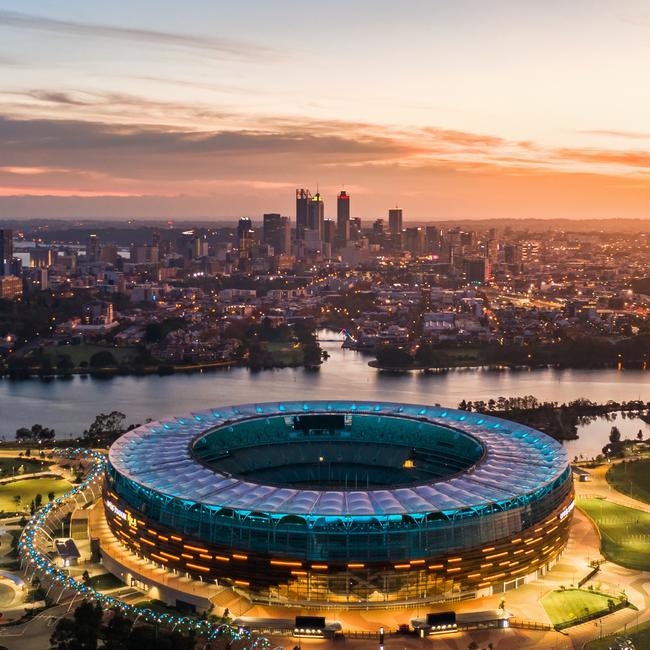
OPTUS STADIUM
The newest of the three biggest stadiums, Western Australia‘s sparkling state of the art ground is unique among the three venues under consideration because it can be reconfigured from its usual oval shape to a rectangle.
The rectangle version lifts the capacity to 65,000, smaller than its rivals, but about average compared to the nine previous finals, with the advantage of being the most modern so all the facilities and sight lines are great.
The multipurpose Optus Stadium won high praise after hosting the Bledisloe Cup, AFL grand final and State of Origin and has one massive edge over its East Coast rivals that can’t be understated.
The three-hour time difference makes it much better for the hugely lucrative European television audience so what Optus Stadium lacks in seats it may make up for in extra broadcasting dollars.
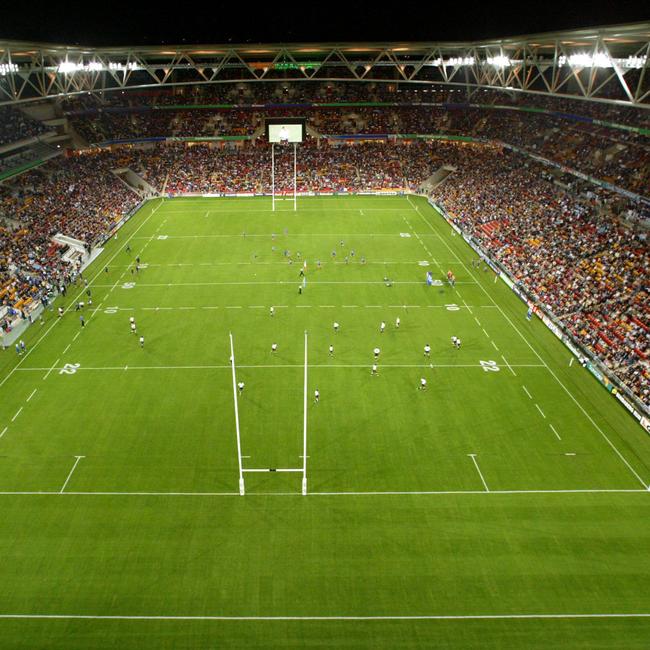
SUNCORP STADIUM
The biggest loser among Australia‘s mainland states is Queensland, one of rugby’s few remaining fortresses where the Wallabies win more than they lose.
The 2032 Olympic and Paralympic Summer host, Brisbane simply doesn’t have a stadium large enough to even bid for the final.
Holding up to 52,500 spectators, Suncorp Stadium is well below the minimum threshold and with Brisbane getting the Olympics on the promise that it won’t go building grandiose structures that a generation of taxpayers will foot the bill for, the Sunshine State has dug its own grave so is resigned to missing out.
INSIDE STORY: HOW AUSTRALIA ALMOST LOST WORLD CUP BID
To win in rugby, on or off the field, a little bit of bluff and bluster always helps.
Part of the bravado that’s required is being able to take a hit without flinching and quickly get back to your feet.
It’s a trick the new brains trust at Rugby Australia (RA) had to master on the run to secure the hosting rights for the 2027 and 2029 World Cups after a few hairy moments threatened to derail their bid.
If they can convert the opportunity, it should be the gamechanger the struggling code needs to flourish again, bringing in millions of dollars and attracting thousands of supporters over the next decade.
FULL STORY: AUSTRALIA WINS WC HOSTING RIGHTS FOR 2027 AND 2029
To outsiders, the slick, public campaign bore all the hallmarks of a perfectly timed and executed plan that was always destined to succeed.
With a star-studded bid team, some of the best stadiums in the world and a reputation for delivering world class events, Australia looked like a slam dunk from the moment the bid was announced.
But now that the ink is drying on the deal, the bidding team’s insiders have opened up about the hurdles they encountered along the way and revealed how close everything came to falling apart because of the knock-on effects from the global pandemic.
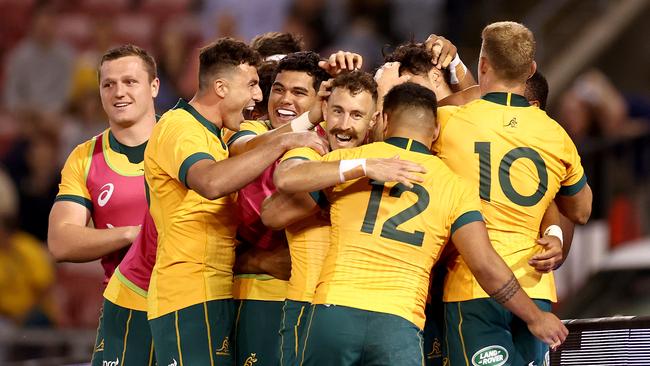
“That’s why we never took anything for granted,” the bidding team’s executive director Phil Kearns said.
“I don’t imagine there‘s a better bid board anywhere else in the world … we had an ex-Prime Minister, a governor-general, some pretty impressive business leaders, the vice-president of the International Olympic Committee, even a knight of the realm. That’s pretty impressive.”
It needed to be because the complexities in winning the approval to host the world’s third biggest sporting event are immense.
Broke and needing a loan to pay its bills as Covid wreaked havoc on the game’s cash cow tournaments, RA adopted a two-pronged attack.
First, they had to convince the sport’s international body they could deliver the profits the tournament was expected to generate.
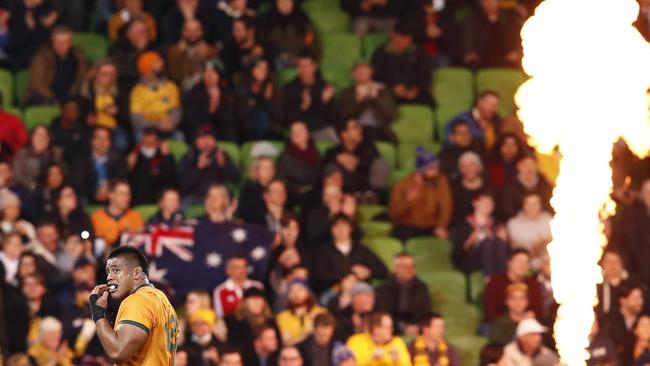
Secondly, they needed to convince Australian governments — both federal and state — that it was a tournament worth investing in — at the same time the country was in lockdown.
Luckily, the groundwork had already started just before Covid, when RA invited a select group of government representatives to the 2019 World Cup in Japan to give them a taste of just how big the tournament was.
“They were all on board, particularly the ones that had been to Japan, they were very enthusiastic,” Kearns said.
“But we needed two buckets of funding, one with support from the federal government and the other was the state government … so the next stop was the federal government.”
At the same time, other members of the bid team were hatching plans with World Rugby, who had decided to trial a new way of selecting major event hosts.
After its council members went against the leadership recommendation to select South Africa as the 2023 host – opting instead for France – World Rugby scrapped the cutthroat voting system and instead pick a ‘preferred candidate’.
It was only in November 2021 that Australia was formally announced as World Rugby’s first-choice after a face-to-face meeting in London that almost scuttled the whole campaign.
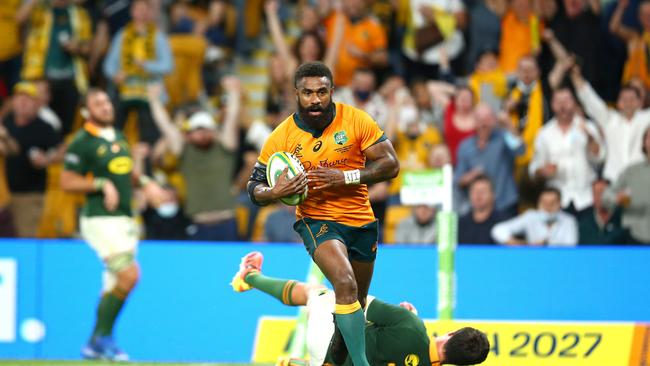
At each of the previous World Cups, the home union took responsibility for everything that happened in their country, including match tickets, hospitality and travel programs, while World Rugby commercialised all the sponsorship and the broadcasting.
RA assumed the same model would be used in 2027 so were caught out when told that a new hybrid version was being implemented.
“Literally as we landed in the UK we received a letter from World Rugby saying ‘we want to flip the model, we don’t want to go on traditional, we want to go into a more of a joint venture pathway,’” Marinos said.
“We realised going into that November meeting we had to hit pretty big numbers in terms of revenue because this is what funds the world game for the next four years.
“And we knew there was some rumblings among the members, is Australia going to be able to deliver this?
“So it really caused us to sort of scramble pretty quickly.
“We always had confidence we would, but it was just how much is going to come to Australia and how much is going to go to World Rugby?”
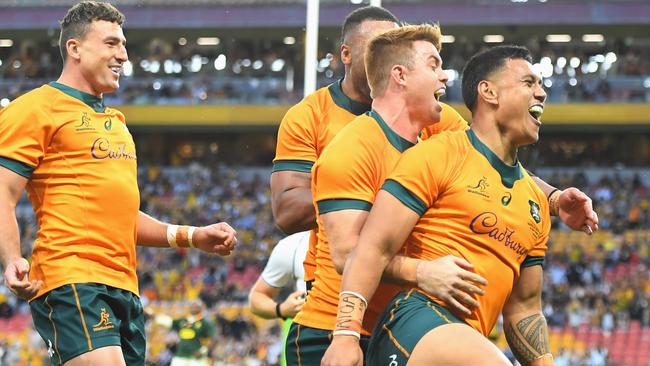
Just before that meeting started, the RA bid team got blindsided with a second setback.
“There is more work to do before we can commit fully as a government,” Kearns said.
It could have been catastrophic but no-one panicked. The bid team quickly put their heads together and worked on finding solutions.
World Rugby was impressed. They named Australia as preferred candidates for the 2027 men’s World Cup and added the 2029 women’s tournament as a show of confidence.
When they returned home, the government made a long-term commitment to support the event, and now it’s official – both tournaments are heading to Australia.
“We were always sort of confident that we could turn that situation around with a bit of quick thinking and a bit of flexibility,” Kearns said.
“That’s where the experience of the bid came in. By thinking a little differently we were able to make both things work.”
More Coverage
Originally published as Rugby World Cup: Accor, MCG, Suncorp and Optus battle to host big games





